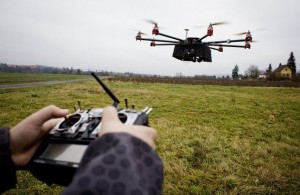 September was in like a lamb and out like a lion for the Federal Aviation Administration. The news was fairly low-key all month until the last few days:
September was in like a lamb and out like a lion for the Federal Aviation Administration. The news was fairly low-key all month until the last few days:
Thursday, September 11: FAA darling Texas EquuSearch gets permission from the administration to search for a missing girl in Plano, Texas.
Friday, September 12: The FAA’s Aviation Rulemaking Committee: Beyond Visual Line of Sight holds its first meeting. The committee has been tasked by the FAA to provide input on immediate, near, and long-term issues facing the integration of drones into the national airspace. The committee is chaired by Michael Toscano of AUVSI, Melissa Rudinger of the Aircraft Owners and Pilots Association, the Air Line Pilots Association’s Mark Reed and John Palatiello, executive director of MAPPS.
Tuesday, September 16: The National Association of Realtors announces it will be working with the FAA to “to educate the agency about safe and responsible uses of drones.” This news doesn’t change the FAA’s stance against the use of drones in real estate businesses, but it suggests that the administration maybe willing to amend its active stance of bullying realtors away from drone use.
Wednesday, September 17: The FAA approves Logos Technologies‘ Tactically Expandable Maritime Platform (TEMP) drone to conduct test flights at the FAA test site at Griffiss Airfield in Rome, NY.
Thursday, September 25: U.S. Transportation Secretary Anthony Foxx announces that the FAA has granted regulatory exemptions to six aerial photo and video production companies so that they can use drones to help shoot movies and television shows. The MPAA had submitted a petition for exemption on behalf of seven aerial imaging companies in June.
While the importance of this news can not be understated, there are some caveats that bear noting:
- Only six of the seven petitioning companies were granted the exemption (the seventh is still under review). These six companies and only these six companies have permission to fly. Director’s can’t just hire anyone they want, especially because…
- Only pilots with the proper license and a class 3 medical certificate are allowed to fly these companies’ drones.
- Even with the exemption these companies have to obtain a certificate of authorization from the FAA before every flight.
And finally:
- If the FAA is going to be exempting companies to fly drones for commercial use on a case by case basis, what’s the point of the official test sites?
Also on Thursday, September 25: The FAA issues an email directive that states all UAS (other than those belonging to the military) that are applying for -or have already been issued- a COA are now required to have an aircraft registration number visible on the aircraft. Because there is no current standard for marking a five lb. quadcopter, the FAA said operators can “propose an alternative marking procedure to the FAA” for approval.
Did we miss something? Let us know in the comments!
Alan is serial entrepreneur, active angel investor, and a drone enthusiast. He co-founded DRONELIFE.com to address the emerging commercial market for drones and drone technology. Prior to DRONELIFE.com, Alan co-founded Where.com, ThinkingScreen Media, and Nurse.com. Recently, Alan has co-founded Crowditz.com, a leader in Equity Crowdfunding Data, Analytics, and Insights. Alan can be reached at alan(at)dronelife.com







Leave a Reply